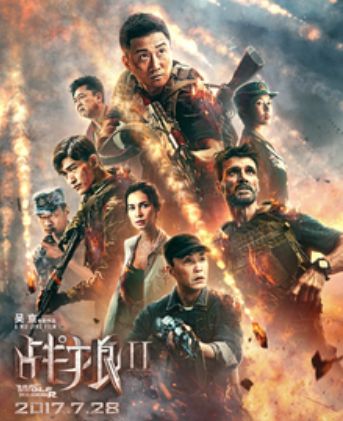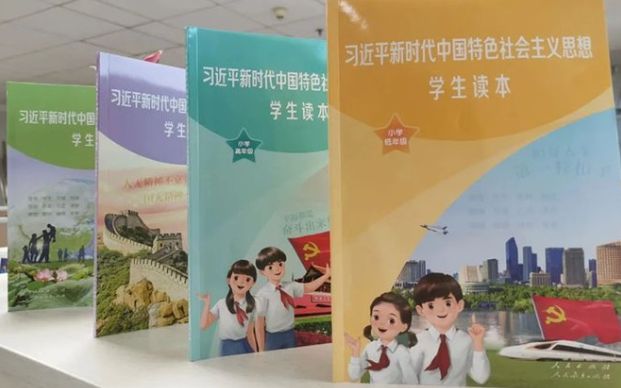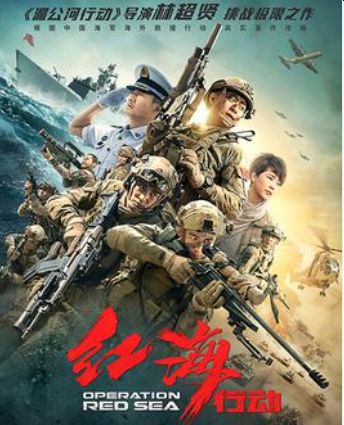By
Eric Vandenbroeck and co-workers
The movie that became
Chinses diplomacy
Wolf warrior diplomacy describes aggressive, coercive diplomacy adopted
by Chinese diplomats in the 21st century under Xi Jinping’s administration. The
term was coined from the Chinese action film Wolf Warrior 2.
A new brand of diplomacy is taking hold in Beijing, and its chief
architects have a suitably fierce nickname to match their aggressive style;
they are the wolf warriors.
It’s a phrase that is now used widely in Chinese state-run media and
Western publications, and it was made clear that its proponents have the full
support of the country’s top diplomat.
But “Wolf Warrior” is the title of a series of patriotic action films
in China, featuring Rambo-like protagonists who fight enemies at home and
abroad to defend Chinese interests. The first film was released in 2015 and
made more than $76 million (545 million
yuan).
It quickly spawned a sequel that became China’s highest-grossing film
at the time when it was released in 2017. “Wolf Warrior 2”’ was based around a
squad of People’s Liberation Army soldiers sent into an African country to
rescue Chinese civilians. The film’s tagline was, “Even though a thousand miles
away, anyone who affronts China will pay.”
Interestingly, COVID-19 is not just a global race to combat the
pandemic. It is also a war of competing narratives, a war of competing
political systems, and a war of competing ideologies. China’s “wolf warrior”
diplomacy is one battlefield in the war, and the battle will
only continue, if not escalate in the foreseeable future.
But it is not only Chinese, EU Ambassador Nicolas Chapuis, speaking at
an energy forum in the Chinese capital, suggested that “We need to have a
common understanding to say ‘no’ to bullying and intimidation, coercive
diplomacy, ‘wolf-warrior’
diplomacy,” he said.
On December 20, 2021, the former Chinese ambassador to the U.S., Cui
Tiankai, delivered a biting keynote to a
symposium co-hosted by the China Institute of International Studies in Beijing.
In front of assembled dignitaries, including Wang Yi, China’s foreign minister
and state councilor, Cui criticized the current state of China’s diplomacy,
warning against “carelessness, laziness, and incompetence.” He admonished his
fellow diplomats to “always have the country at large in mind, and not always
think about being an internet celebrity.”
The comments were a thinly-veiled dig at the increasingly sharp-edged
messaging emerging from China over the past several years, as its diplomats
have embraced a uniquely aggressive approach now widely known as “wolf warrior” diplomacy.
The film is a sequel to 2015's Wolf Warrior. It was released in China
on 27 July 2017. The film tells a story of a loose cannon Chinese soldier named
Leng Feng who takes on special missions around the world. In this sequel, he
finds himself in an African country protecting medical aid workers from local
rebels and vicious arms dealers.
Wolf Warrior 2 became an immediate phenomenon, grossing $146 million in
that same window. By August 8, twelve days after its premiere, Wolf Warrior 2
was not just the highest-grossing movie of the year - it was the
highest-grossing movie in China’s history. Wolf Warrior 2 would run for months,
eventually grossing $854 million - then the second-highest amount of money
earned by a movie in one country in world history. By 2017, China’s box office
had grown to a point that Hollywood could regularly realize gigantic grosses,
such as the $393 million made by The Fate of the Furious months earlier. But
Wolf Warrior 2 made more in China in 2017 than movies like Thor ( the 2011
American superhero film based on the Marvel Comics character of the
same name): Ragnarok ((a 2013 Norwegian fantasy adventure film about the
legendary story of Ragnarök) and Wonder Woman (2017 American superhero
film based on the DC Comics character of the same name) had made that year
worldwide.

While China had started the decade leaning on the American film
industry for revenue and education, the country would end it by not needing
U.S. entertainment at all. Wolf Warrior 2 managed to wrap Xi’s propagandistic
messaging in popcorn entertainment. It gave Chinese audiences a hero they could
put up against the Captain Americas of the world, one who matched the moment
emerging across the ascendant country. Other made-in-China blockbusters
followed, putting on Chinese screens versions of the Americana classics that
filled auditoriums in the U.S. in the 1980s. Hollywood studios turned to
Chinese partners who could identify what themes would resonate among these
discerning audiences no longer content to flock to whatever Los Angeles sent
them, the incumbent global industry becoming the student for a change. Soon
even Steven Spielberg, a decade after his Olympics controversy, was turning to
China’s richest man for help. China, on-screen in Wolf Warrior 2 and off-screen
at the box office, was winning.
The past decade had been kindling; Wolf Warrior 2 was the first match.
Stories emerged of audiences spontaneously bursting into the Chinese national
anthem as the credits rolled. China had a blockbuster that its people could
cheer.
But what were they
cheering?
It is also narrative worldwide audiences have come to know, call it the
Bruce Willis template. Wolf Warrior 2 opens with Wu Jing’s character defying
authorities razing the home of a fellow soldier’s family, an altercation that
lands him in prison for two years. The action picks up when Leng is released
and travels to a nameless country in Africa, where Wu Jing does his best
approximation of Sylvester Stallone heroics to save the local communities from
terrorists and mercenaries running over the land. Machine-gun bullets spray
toward him, but not a one grazes him. He dispatches dozens of bad guys with
switchblades and martial arts moves. He consoles young children and outdrinks
the other men. When a soccer match breaks out, he scores a goal and flexes his
biceps for the women. Deprived of most resources in one battle, he fashions a
deadly arrow using poisonous sap extracted from a desert cactus.
Though he is ostensibly saving the day in Africa, a phantom opposition
pervades the film: the United States. “There’s our hero!” shouts American
sailors after Leng - and not their own military - rescues them from Somali
pirates. When a fight breaks out, he and a woman drive to safety. She suggests
going to the U.S. consulate, where the marines are stationed.
When the UN helicopter
crashed
Later, she calls the U.S. consulate from a cell phone and gets the
answering machine. The UN helicopter comes to help. It crashes soon after
taking off.
While Hollywood studios were stripping their movies of Chinese
villains, Chinese filmmakers were not extending the same courtesy. The main
adversary in Wolf Warrior 2 is Big Daddy, leader of the mercenary soldiers. Big
Daddy is a disgusting caricature of American ego and entitlement. He looks at
the African villagers whom Leng wants to save and assesses them as worthless
lives, a one-man representation of China’s main argument to the continent:
America has abandoned you, but we are here to help.
During their final battle, Leng gets to show Big Daddy who is boss, the
moment where he can beat him not only physically but metaphorically.
Leng ends the movie with his character hoisting a Chinese flag above
his head and riding through the African countryside. “Hold your fire! It’s the
Chinese,” the villagers shout. In the movie’s closing credits -played as some
sold-out auditoriums sang or burst into applause - a pronouncement appeared:
“Citizens of the People’s Republic of China when you encounter danger in a
foreign land, do not give up! Please remember, at your back stands a strong
motherland.”
President Xi Jinping
as China's 'Big Daddy Xi'
Shortly after taking office, Xi had said that “after more than one
hundred and seventy years of struggle since the Opium War, the great renewal of
the Chinese nation can finally glimpse a bright future.” Elementary school
classrooms had once displayed posters reading wu wang Guo chi - “never forget national humiliation” - pervasive
insecurity rooted in the Opium Wars, yet here was a Chinese hero proudly waving
the elementary school classrooms had once displayed posters reading wu wang guo
chi - “never forget national humiliation” - pervasive insecurity rooted in the
Opium Wars, yet here was a Chinese hero proudly waving the country’s flag and
stepping in when other countries fled, a cinematic incarnation of Xi’s promise
in 2017 that “no one should expect China to swallow anything that undermines
its interests.” Wu Jing was not unlike John Wayne, who, Joan Didion wrote,
became an American star in the 1940s because he was a “perfect mold” for “the
inarticulate longings of a nation wondering at just what pass the trail had
been lost.” Wu Jing soon became a perfect mold into which Chinese officials and
moviegoers alike could pour their ambitions. Yet unlike with Wayne, there was
no wistfulness or examination of the nation’s past sins clouding the bravado,
only a newfound identity as a nation on the world stage.
To make Wolf Warrior 2, Wu relied on freelance help from the West that
had shaped some of Hollywood’s biggest blockbusters of all time. The creation
of Leng Feng, China’s own superhero, had come with help from the superhero
creators of Marvel Studios, Joe and Anthony Russo, brothers known for helming
two Captain Americas and a two-part Avengers epic. As thanks to Beijing Culture
for investing in their production company, the brothers offered filmmaking
advice in a meeting held at the Disney studio lot (Wu showed up in camouflage).
They encouraged Wu to hire Sam Hargrave, a stuntman and action coordinator who
had choreographed Chris Evans’s fight scenes in Avengers: Infinity War. At the
Russos’ recommendation, Frank Grillo, a character actor whom they had directed
as a villain in Captain America: The Winter Soldier, would be paid $1 million
to play Big Daddy. The Russo brothers themselves, though, declined an executive
producer credit, deciding it wasn’t worth the risk to their reputation to put
their name on the movie. Beijing Culture’s model kept the story’s theme and
characters Chinese but outsourced some of the components of a movie that can
signal sophistication to audiences: special effects, fight choreography, music.
At the time of the release of Wolf Warrior 2, China established its
first overseas military base in Djibouti, the small country in the Horn of
Africa, perhaps not far from the unnamed African country Leng Feng rescues in
the film. Wolf Warrior 2 reflects these foreign policy initiatives.
When students in China returned to classrooms in September 2021, they
were provided with a new series of
textbooks outlining China’s president Xi Jinping, or “Grandpa Xi’s”, political
philosophy.
Each textbook on “Xi Jinping Thought on Socialism with Chinese
Characteristics for the New Era”, as Xi’s political philosophy is officially
called, is tailored to students at primary, secondary, and tertiary levels.

“Xi Jinping Thought” was enshrined into the Chinese Communist Party’s
(CCP) Constitution in 2017. Although the
main stated aims are to remain committed to reform and build a “moderately
prosperous society”, the realities of this political philosophy
has been a tightening of party discipline.
Meanwhile, the Chinese movie industry produced other treatments of
Chinese heroism at a clip, many inspired by real-life efforts by Chinese
soldiers to save their countrymen overseas. Operation Mekong retold the story
of an attack on Chinese ships near the border of Burma and Thailand. It is
a Chinese-Hong Kong crime action film directed by Dante Lam and starring Zhang
Hanyu and Eddie Peng and became one of the highest-grossing films in China.
Operation Red Sea is a 2018 Chinese-Hong Kong action war film
directed by Dante Lam and starring Zhang Yi, Huang Jingyu, Hai Qing, and Du
Jiang. The film is loosely based on the evacuation of foreign nationals and
almost 600 Chinese citizens from Yemen's southern port of Aden during late
March in the 2015 Yemeni Civil War. According to Chinaculture.org, the film is
in a similar style to that of Operation Mekong. It serves as the highlight film
presented to audiences as a gift for the 90th anniversary of the founding of
the Chinese People's Liberation Army, as well as the party's 19th National
Congress. This film is said to be "China's first modern naval film".
The film has grossed USD$579 million, and received critical acclaim from
critics, making it currently the seventh-highest-grossing ever in China and
highest-grossing Chinese film in 2018. It was selected as the Hong Kong entry
for the Best Foreign Language Film at the 91st Academy Awards, but it was not
nominated.
Dante Lam's military drama was a box-office hit in China, earning
nearly $580 million, but took $1.1
million in Hong Kong.

It dramatized efforts by Chinese soldiers to rescue Chinese citizens
stuck in Yemen during that country’s civil war. Even though the movie was
produced in cooperation with the Chinese navy, the film added a propagandistic
sheen to the real-life stories. Its soldiers fired slow-motion bullets and made
impossible shots to the target’s cranium. When a soldier in Operation Red Sea
is injured in battle, he recovers in - where else? - Djibouti. Both movies
performed phenomenally at the box office, but Operation Red Sea was a
particular hit. It became the fifth-highest-grossing movie in Chinese history.
Decades after Qu Qiubai had called for “new wine in old bottles,” China’s
filmmakers were grafting propagandistic impulses onto commercial storytelling.
For updates click hompage here